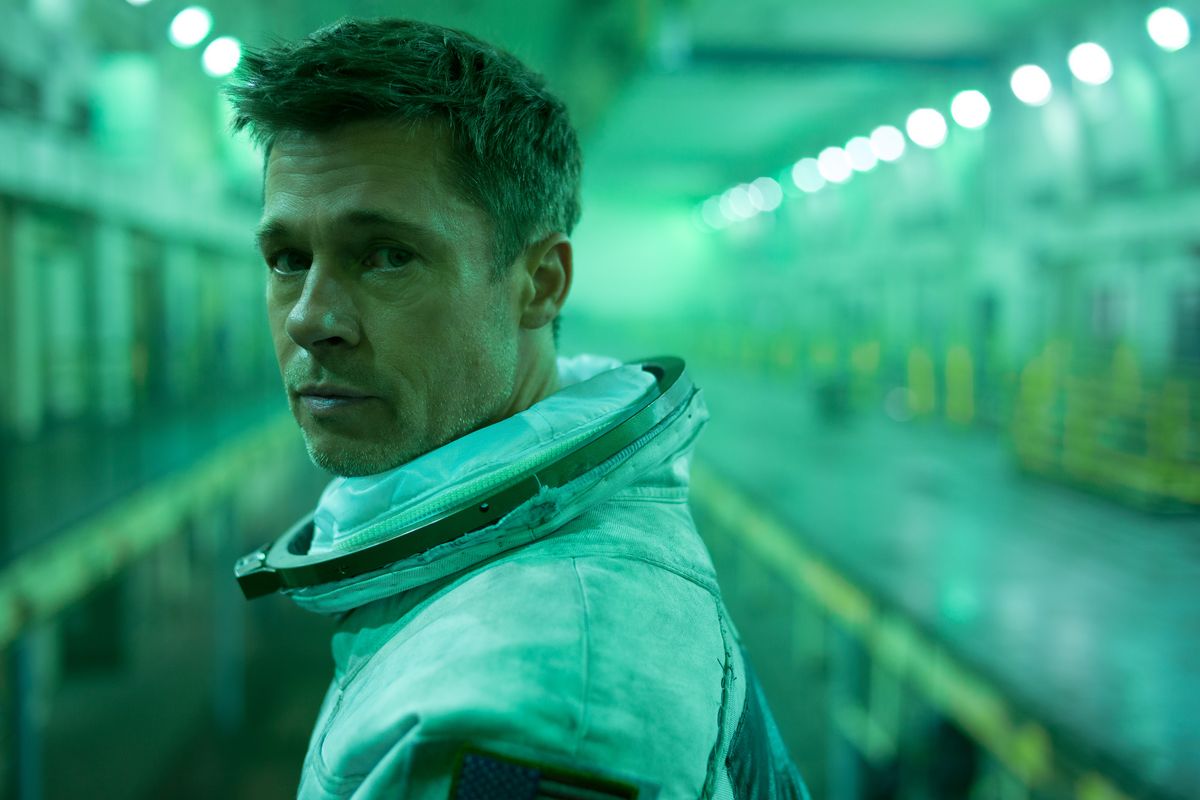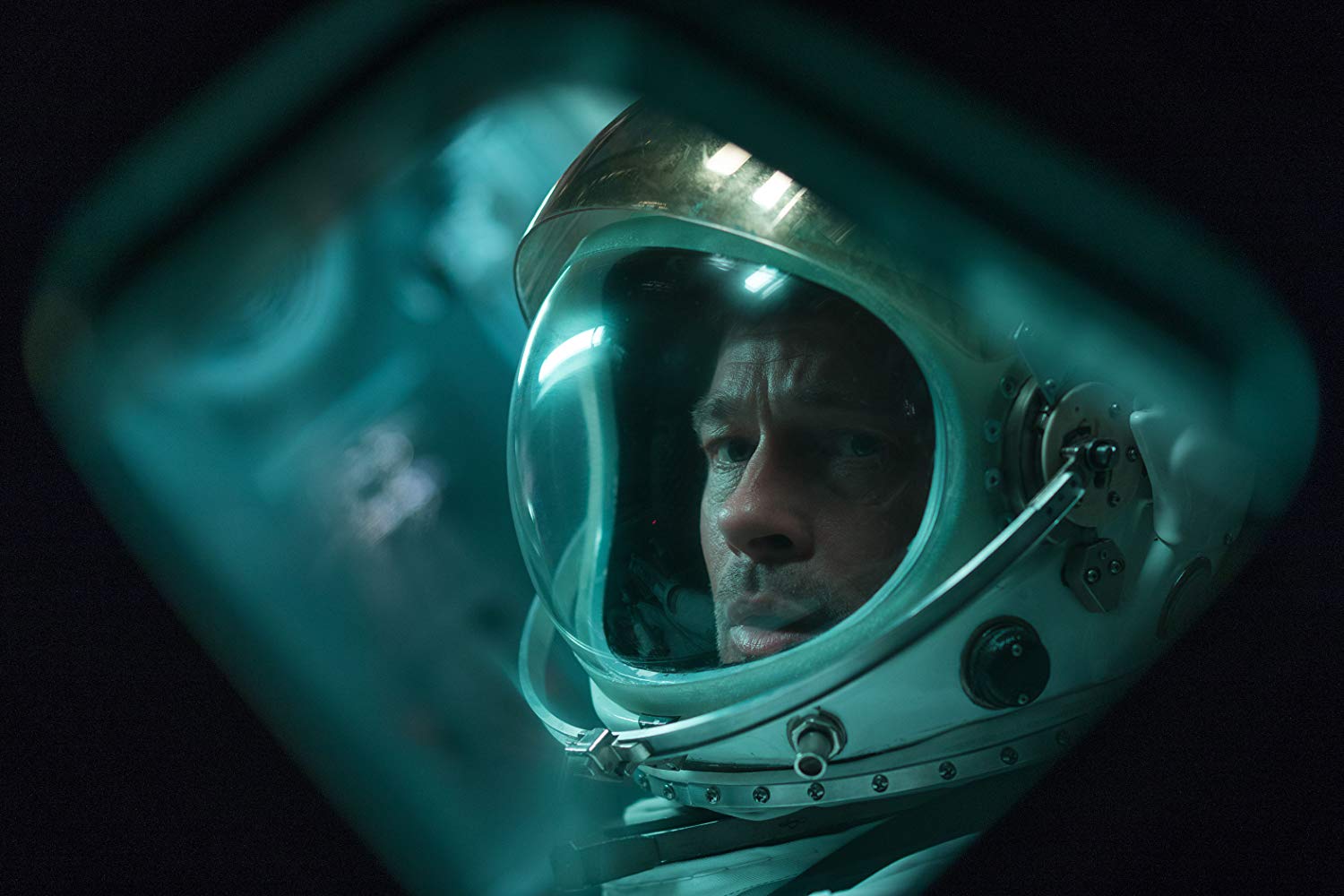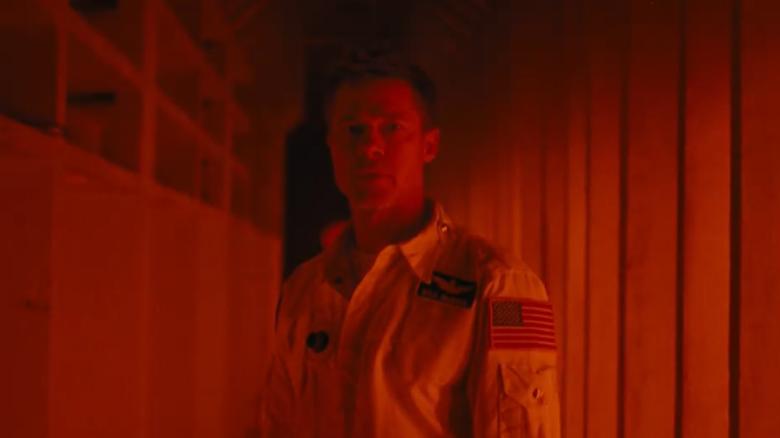Early on in the film, we see him take a psychological evaluation — “I will not allow myself to be distracted by unimportant things,” he tells the AI. One of these things is his wife. We see her leaving Roy, but even then the camera focuses only on him. Director James Gray (The Lost City of Z) places his wife (Liv Tyler) in the background, a blur and at a distance. One day, there’s a power surge and we bear witness to a wonderfully staged and most heart-pounding (okay, maybe it’s less pounding and more soft-beating) set pieces of the film. Our heart races as we see a number of astronauts feel fall to their death. His heart remains as calm as doldrum. The power surge, his superiors theorise, is probably caused by members of The Lima Project, led by his dad (Tommy Lee Jones), who went on an expedition years ago and never came back. Roy, because of his apparent nonexistent emotional gradient and ability to maintain robotic composure even during the direst of circumstances is deemed the most suitable man for the mission — To journey across the solar system, locate his missing father and stop the power surges. But this isn’t an exciting space adventure film. It’s about a man self-actualising, getting in touch with his feelings and confronting his greatest idol and bane of his life, his dad. In Ad Astra outer space is less the point and more a vessel for a character study. Brad Pitt is stellar as this central character. In Once Upon a Time in Hollywood, Brad Pitt’s sexiness pierced through the screen like a Katana and impregnated members of the audience (even the men) like it was 1999. Here, that sexiness is gone. It isn’t that they’ve covered him in prosthetics or heavy make-up — he still looks like Brad Pitt. But his energy is vastly different. His vibe is different. Pitt performs this emotionally hollow character so well, Ryan Gosling may now be out of a job. (I take that back. Ryan Gosling is the best.) It’s like his soul had been sucked out by the dementors from Harry Potter. Yet you know his heart is not completely barren. Maybe it’s his eyes? Whatever it is, you know that deep down in his heart, there’s a little something called ‘feeling’ simmering.
The problem is, despite its intriguing premise, Ad Astra is quite the mundane affair. Look, I love quiet, slow-burn films. Ex Machina is perhaps one of my favourite films ever. But a film like Ex Machina constantly keeps us on our toes — we’re desperate to know what happens next. But here, scene to scene to scene, hardly anything interesting happens. There are no arousing notions to think about. It doesn’t challenge you to question your own belief system. James Gray and his co-writer Ethan Gross do touch on theology and philosophy, but it feels oddly out of place given that it’s a Sci-Fi film, a genre where these topics usually thrive. When the captain dies, prayers are said, but it doesn’t feel organic. It’s meant to be a ponderous scene but it feels jarring. The talk of higher power feels pretentious because there’s no depth to it. Every once in awhile, though, something crazy happens… sporadic action beats to jolt you out of your seat and sometimes have your eyes wide open in bafflement and wonder. There’s a WTF scene involving apes. They’re much needed bright spots.
I also love reflective single character films like 127 Hours, Cast Away and Wild. But there, the characters are raw, they express. We feel their struggles, pain and suffering. We understand them. Root for them. But because here, our lead character is so emotionally distant, it’s difficult for us to get emotionally invested or stay engaged. A character of this nature worked in First Man, because there Neil Armstrong (my man Gosling) was surrounded by regular people and the contrasting nature of the characters made it gripping. Who can forget the emotionally climactic argument sequence between Gosling and Claire Foy? Here, we don’t get that contrast. In fact, we only get to know Pitt’s Roy McBride through melancholic voiceovers, without which Pitt probably has less than 20 lines. I get that it’s part of his arc, but it doesn’t change the fact. Yes, we do get bursts of emotion in the climax, but because we aren’t connected to what happened before, it doesn’t play out as a crescendo. The conclusion of the father-son dynamic works better on paper than on screen. (Though, Tommy Lee Jones is excellent in this sequence).
I do, however, have to compliment the technical achievement of the film. The screenplay may not offer much, but James Gray’s direction deserves applause. This is an environment film. It’s quiet, still, meditative. You feel it! The cinematography by Hoyte Van Hoytema (Dunkirk, Interstellar, Her) is still too. There are plenty of gorgeous wide shots that encapsulate the vastness and quietness of space. The score, by Max Ritcher, doesn’t blare through the speakers — like Roy’s emotions, it simmers. If there’s one thing James Gray does really well, is that he makes you feel lonely and isolated like the lead character. Too bad he made me feel a little sleepy too. Ad Astra is currently playing in Malaysian theatres.


